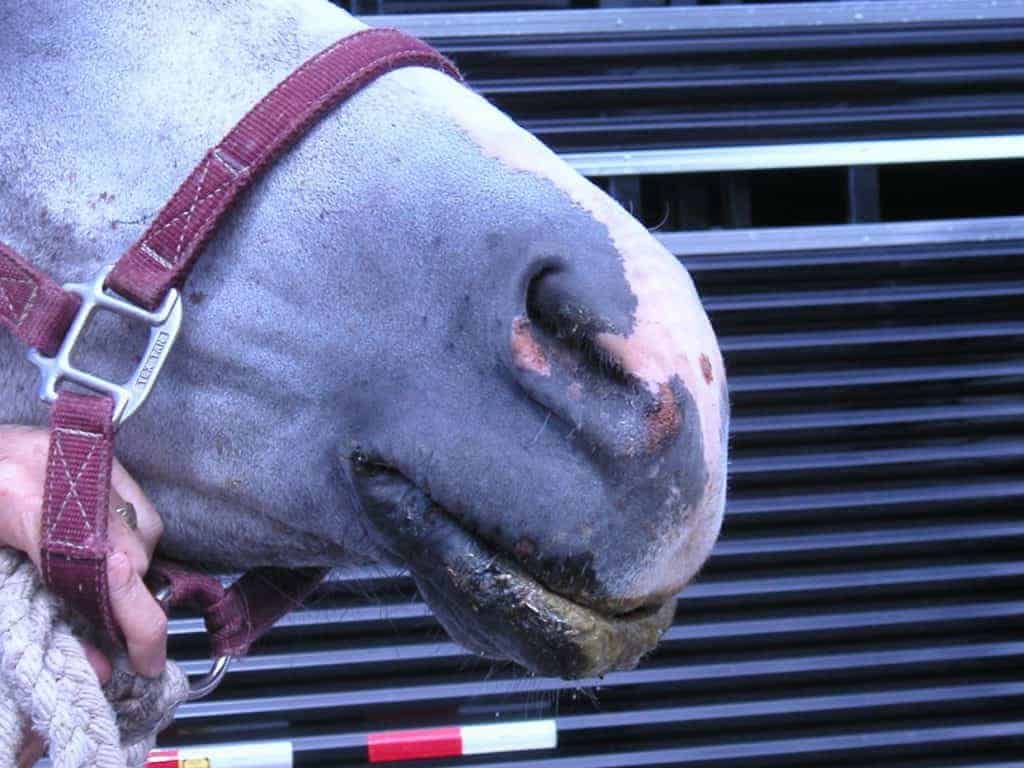
USDA Confirms 54 New Premises with Vesicular Stomatitis
Here’s your update on VSV-positive states and counties.
Horse-health-problem risk factors, prevention, diagnosis, and treatment

Here’s your update on VSV-positive states and counties.

New equine West Nile virus cases have been diagnosed in Kern and Stanislaus counties.

Veterinarians euthanized the 6-month-old colt due to poor prognosis. Additionally, the state has reported its first human case since 2010.

Three horses in separate counties confirmed positive for West Nile virus.

Officials have reported Madera County’s first and the state’s fifth confirmed equine WNV case for 2019.

The unvaccinated Ashtabula County horse succumbed to the deadly EEE virus.

Stress not only leads to stereotypical behaviors and high cortisol (stress hormone) levels but also disrupts the horse’s gastrointestinal (GI) system and microbiome.

Both Elkhart County horses were euthanized.

Horse owners in the southwestern and western U.S. should be aware of the current VS outbreak situation and implement aggressive vector mitigation and biosecurity strategies to protect their horses.

The 15-year-old unvaccinated mare was confirmed positive for EEE on Aug. 28 and euthanized after showing clinical signs beginning Aug. 18.

The diagnosis marks Putnam County’s second positive Eastern equine encephalomyelitis case for 2019.

Studies have shown a lunar influence on humans and animals, from fertility levels to hormone fluctuations to immune response. More research into its effect on equine colic, however, needs to be done to make a strong association.

The unvaccinated 12-year-old Quarter Horse mare presented on Aug. 13 with ataxia, fever, head-pressing, and tremors and died from the disease on Aug. 14.

This is the state’s first equine infectious anemia-positive horse in 2019.

Here’s your update on confirmed positive and suspect states and counties.

A researcher investigated how long horses spent eating when offered varying amounts of soluble fiber. Her findings could help your horse avoid health and behavior issues, such as gastric ulcers and cribbing.
Stay on top of the most recent Horse Health news with
"*" indicates required fields